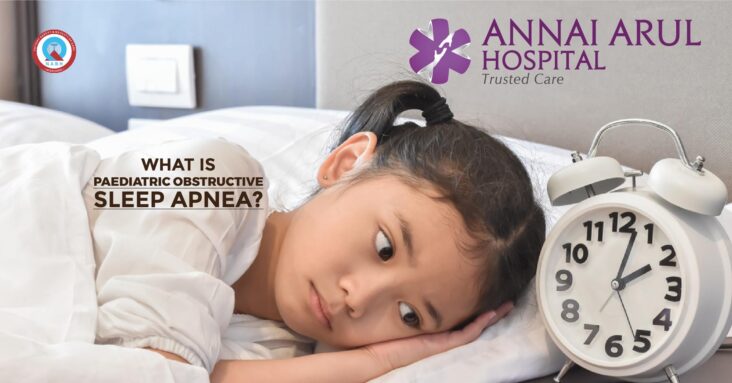Paediatric obstructive sleep apnea is a sleep disorder that affects children. This is a health condition where a child’s breathing is partially or completely blocked during sleep. Paediatric obstructive sleep apnea occurs when the upper airway is narrowed or completely blocked during sleep.
Paediatric obstructive sleep apnea is different from the adult sleep apnea. Adults usually manifest daytime sleepiness due to adult sleep apnea but children show marked behavioural problems. In many of the cases of adult sleep apnea the leading cause is excess body weight or obesity, whereas, in children, the most common cause is an enlargement of the adenoids and tonsils.
It is crucial that paediatric sleep apnea is diagnosed early to prevent later stage complications to the child, including growth, cognitive development and behaviour.
What are the symptoms of paediatric sleep apnea?
There are many symptoms that is manifested when a child is sleeping. These symptoms include some sort of snoring, pauses in breathing, restless sleep, snorting, coughing or choking, mouth breathing, bedwetting and sleep terrors. Most infants and young children do not snore and may instead have a restless sleep.
The effects of sleep apnea in children during the day can be well recognised. The children with sleep apnea may perform poorly in school, they have difficulty paying attention in the classroom, have learning problems, have behavioural problems, do not gain age-appropriate growth and weight, they will be mostly hyperactive.
What are the causes of paediatric sleep apnea?
The primary cause for paediatric sleep apnea is the presence of enlarged tonsils and adenoids. Yet, obesity also plays a key role in children. Sometimes certain craniofacial conditions and neuromuscular disorders can also lead to paediatric sleep apnea.
When to consult a doctor?
If your child is showing signs of restless sleep at night and later shows tiredness in the morning with sure symptoms of hyperactivity or behavioural problems then it is time you sought the right medical intervention for treating the condition.
What are the risk factors?
Apart from obesity, other risk factors for paediatric sleep apnea include Down syndrome, abnormalities of the skull and face, cerebral palsy, sickle cell disease, neuromuscular disease, family history of the disease and low birth weight.
Serious outcomes
Paediatric sleep apnea is not limited to just lack of sleep and behaviour problems in children. It can lead to severe health problems too. The problems include stunted growth in children, lead to major heart problems and in some cases where proper treatment is not give cause the death of the child.


